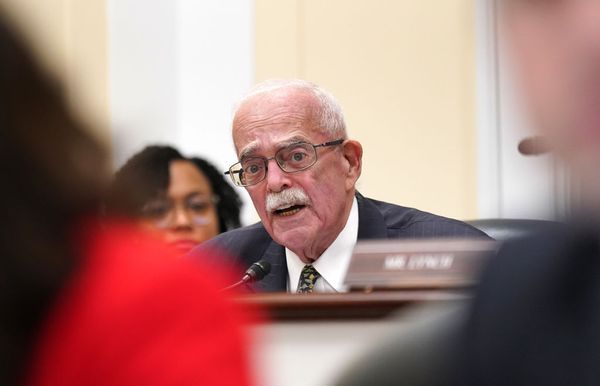
A quarter of all private money donated to political parties in the EU is going to far-right, far-left and populist movements, boosting their finances by millions of euros before crucial European parliament elections next week.
With the polls predicting a rise in support for hardline conservative, Eurosceptic and pro-Russia parties, the Guardian and other 26 media partners, led by the investigations group Follow the Money, are publishing Transparency Gap, the most extensive analysis yet of political financing in the EU.
The data was gathered from the annual reports of more than 200 parties across 25 countries.
It shows €150m (£128m), the equivalent of €1 in every €4 of all private donations made between 2019 and 2022, went to populist parties and those with the most extreme political views.
Far-right groups have pulled in more than €97m, equivalent to €1 in every €7 of private money.
The project used the same party classification as research group The PopuList, which defines those on the far right as having a nationalist and authoritarian ideology.
While most countries oblige parties to declare their total income from private and public sources, rules vary widely and financing in some member states is a “black box”. Three-quarters publish no information or only partial data on who the individuals or businesses are behind donations.
A transparency gap exists even when parties are following their country’s rules. The research found no signs of wrongdoing, but a major study commissioned by the European parliament into political party funding concluded that a lack of transparency can lead to corruption risks.
“While all EU member states have adopted regulations regarding the reporting and public disclosure of donations, what must be reported and what must be disclosed vary substantially … there is often a striking discrepancy between low reporting and high disclosure thresholds and the average threshold of €2,400 carries potential corruption risks,” the report stated.
“Nothing forbids parties to publish more detailed information than required by law,” said Fernando Casal Bértoa, an expert on European political parties and systems and an associate professor in comparative politics at Nottingham University. “But almost nobody does.
“Parties are not interested in transparency. They think that is going to limit them,” he said.
When other forms of funding are included – specifically membership and donations made by a party’s own politicians or officials – hardline and populist parties captured one-fifth of money raised between 2019 and 2022, amounting to almost €500m, the data shows. For far-right parties the sum was close to €200m – €1 in every €11.
In France, three parties on the extremes of the political spectrum – Reconquête and Marine Le Pen’s National Rally on the right and La France Insoumise on the left – have experienced a dramatic rise in financial support.
These three parties took just 13% of non-public money raised in France in 2019 but their share reached 38% in 2022, when Emmanuel Macron faced Le Pen in a runoff for the presidency.
Non-public funding includes money from donors, fees from members, and contributions from a party’s own candidates and officials. It excludes state funding, loans from donors and other income such as profits from fundraising events, merchandise and real estate holdings.
In Latvia, which is expected to experience a sharp increase in anti-European and populist MEPs next month, non-public funding to these parties has risen from 9% to 36% in four years, mainly driven by the populist centre-right Latvia First party.
The analysis shows that, when combined, far-right, far-left and populist parties are attracting more than half of the non-public funding in Slovenia, Italy, Poland, Hungary, Portugal and Greece.
Hungary’s ruling Fidesz party, which has held power for 14 years and has overseen a reduction in the amount of state funding, took 55% of all non-public money in 2022.
Polling suggests nationalist and far-right parties are on track to finish first in Hungary and eight other EU states – including Austria, France, Italy, the Netherlands and Poland.
At a far-right rally in Madrid earlier this month, the Hungarian prime minister, Viktor Orbán, delivered a video message calling “for patriots to occupy Brussels”, saying legislators there were responsible for “unleashing massive illegal migration” and “poisoning our children with gender propaganda”.
In Poland, a close ally of Fidesz – the far-right Law and Justice party, which was the ruling party until last year when former prime minister Mateusz Morawiecki lost the majority in October elections – took a 44% share of all non-public funding in 2022.
In Italy, four populist parties, including Giorgia Meloni’s Brothers of Italy and Matteo Salvini’s League – both of them to the right of the political spectrum – along with Forza Italia and the Five Star Movement, secured 55% of non-public funding in 2022, the data shows.
In some countries, far-left parties have a large slice. The Communist party of Greece takes more than half of country’s non-public funding, while its Portuguese counterpart the Partido Comunista Português is over 50% of the total.
In most countries, money from the state is now the most important income stream, with non-public money representing less than a quarter of available funding in Spain, Hungary and Portugal and just about 15% in Ireland and Belgium.
In other nations where private money dominates, state contributions are still significant. For example, in Germany and the Netherlands, public funding represented about 45% of the money political parties received in 2022.
After a landmark decision by Germany’s federal constitutional court in 1992, allocation of public funds to political parties is based on their “rootedness in society”.
“This means that political parties will always have to seek the support of the public,” the German authorities have said.
• This article was amended on 30 May 2024 to clarify the position of Mateusz Morawiecki, the former prime minister of Poland. An earlier version suggested he was president of the Law and Justice party, in fact he is vice-president.







